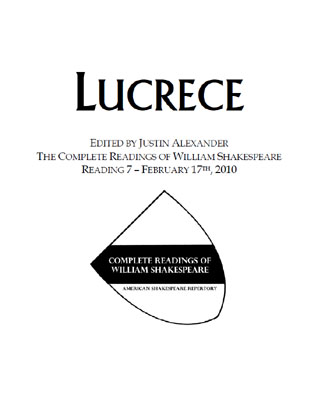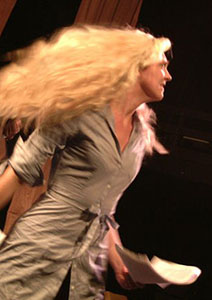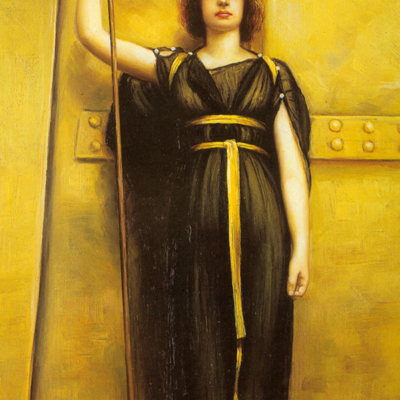 For those of you being introduced to the American Shakespeare Repertory for the first time with our production of William Shakespeare’s Rape of Lucrece in the 2011 Minnesota Fringe Festival, one of the distinguishing traits of the company is our “foundational” approach to Shakespeare.
For those of you being introduced to the American Shakespeare Repertory for the first time with our production of William Shakespeare’s Rape of Lucrece in the 2011 Minnesota Fringe Festival, one of the distinguishing traits of the company is our “foundational” approach to Shakespeare.
As part of the Complete Readings of William Shakespeare, we go back to the original scripts as they were published during (and shortly after) Shakespeare’s lifetime. We then build up our performance scripts by re-exploring and re-establishing the scholastic traditions of the last 400 years while following a principle of least interference. The process has not only given us a deeper appreciation of the texts themselves, but also — in our opinion — resulted in more accurate and useful scripts for the purposes of rehearsal and performance.
We first performed the epic poem Lucrece as part of the Complete Readings in February 2010 with Emma J. Mayer in the title role. For that performance we used a complete version of the poem based on the original 1594 Quarto:
LUCRECE – FULL TEXT
Unlike many of Shakespeare’s works, there is not much to say about this text: It is remarkably clean and free from errors. One point of potential interest is that the poem was originally published as Lucrece and only later became popularly known as The Rape of Lucrece.
CUTTING SHAKESPEARE
When it came time to revisit the show for the Fringe Festival, it was necessary to cut the text so that it could be performed within the festival’s 60 minute time limit.
Cutting Shakespeare is a difficult and daunting task at the best of time. Before you can even begin, you must first have a deep understanding of the work: Otherwise you’ll have no idea what valuable dramatic beats and textual clues you may inadvertently and ignorantly discard.
Fortunately, having edited the text and previously performed the piece, I was intimately familiar with it. But, of course, there were still mysteries. (For example, I’m still not entirely sure why Shakespeare so frequently emphasizes the image of a honey bee over the course of the poem. Each individual piece of imagery makes sense; but I haven’t fully grasped its pervasive totality. Since I was uncertain what Shakespeare was trying to accomplish, I erred on the side of caution and left every honey bee allusion intact.)
Once the process of cutting actually begins, I find it most effective to perform multiple passes through the text. This allows one to gently massage the text instead of feeling the need to cut huge chunks out of it. I can identify the extraneous while also preserving the essential. And it generally makes me more successful in maintaining as much of the text’s original structure and content.
In the case of Lucrece, for example, I performed six passes through the text — each refining the result. (And later a seventh when we were still running a couple minutes too long.) I am very pleased with the result: The only element of the original poem which is entirely missing from this cut is the character of Lucrece’s maid (who fetches her pen and paper to write). And the success of the cut seems testified by those who have seen the show and, having read the poem, feel nothing in its absence.
Here’s the final version of our script as it is being performed:
RAPE OF LUCRECE (MINNESOTA FRINGE FESTIVAL – DRAFT 7)
This script also shows how the lines have been assigned to the two actors for the purposes of performance.
TEXTUAL PRACTICES
Source Text: First Quarto (1594)
1. Original emendations in [square brackets].
2. Spelling has been modernized.
3. Punctuations has been silently emended (in minimalist fashion).
4. In the Fringe 2011 script, lines have been assigned to the two actors for the purpose of performance.


 First, Shakespeare was writing in a well-established “taming your wife with physically abusive comedy” genre that was very popular in Elizabethan theater. So, to some extent, you’ve basically got the script from one episode of Friends and you’re trying to produce it 400 years from now after everyone has forgotten what a sitcom is.
First, Shakespeare was writing in a well-established “taming your wife with physically abusive comedy” genre that was very popular in Elizabethan theater. So, to some extent, you’ve basically got the script from one episode of Friends and you’re trying to produce it 400 years from now after everyone has forgotten what a sitcom is.











